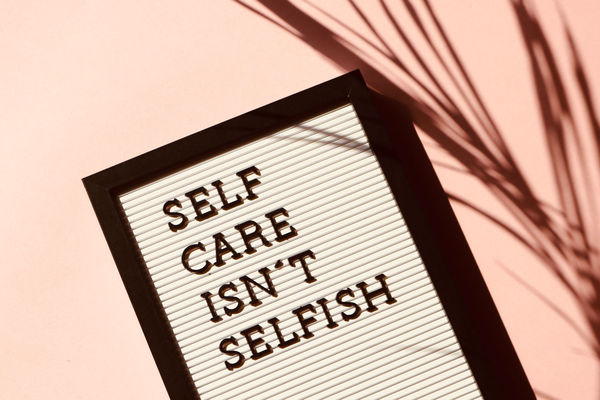
The coronavirus pandemic threatens not only people’s physical health, but also peace of mind. Can practicing self-care and mindfulness help ease stress? NDWorks turned to Wellness Coaches Martha Vanderheyden and Mary Shafer for advice. Here’s what they said….
During these unprecedented times, we are encouraged to dedicate time to taking care of ourselves. In the media, you may see the terms ‘self-care’ or ‘mindfulness’ suggested as ways to do so. Let’s look at these two ideas and see how we can incorporate them into our lives.
Self-Care is the intentional taking of time to pay attention to yourself. Identify what you enjoy doing and make an effort to integrate that activity into your day or week.
Once you discover your self-care activities, implement them into your regular routine so you can continue to boost your well-being. Self-care will help you to de-stress, stay healthy, and be resilient. So, take some time to rest your mind, tune out the noise, and give your brain a healthy pause. Examples of self-care could be (but definitely not limited to):
- Listening to music, podcast, or radio show
- Reading a book
- Writing in a journal
- Prayer or spiritual practice
- Watching a movie or episode of your favorite show
- Crafting, sewing, building drawing
- Playing a game with others
- Engaging in a group/club that interests you (book club, mom’s group, Bible study, etc.)
- Taking a walk or other form of exercise
- Getting the sleep you need
- Feeding yourself in a manner that provides you energy and nourishes your body to function at its best
Mindfulness is defined as a nonjudgmental awareness of the present moment. Nonjudgmental awareness means we are present without the addition of our own story or analysis. During such moments we are intentionally curious, interested and attentive to what is happening. We are fully aware of where we are, what we’re doing, our thoughts, our feelings, bodily sensations and our emotions. By bringing our attention to the present we are able to accept, calm stress, reduce our reactivity, improve compassion toward ourselves and others, improve innovation and improve overall well-being.
Sounds easy enough, but how do we do it? It starts by making the choice to be mindful, but there are some methods to facilitate:
- Meditation
- Body Scan
- Yoga
- Breathing techniques
- Walking meditation
- Mindfulness while in a meeting, driving or eating
Mindfulness practices can benefit our immune system, improve sleep quality, increase positive emotions, improve attention and decision-making, increase optimism, and increase resilience; just to name a few.
For a private consultation with a wellness coach, call 574-631-2366.
Originally published by at ndworks.nd.edu on July 29, 2020.